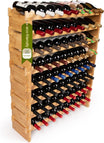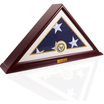There are about 2000 different types of wine. Even if you try one wine every day, it takes about 7 years to try all of them. Instead of this long study, I think it is better to learn how to classify them. The wine you love is the best wine. Let's try to find it below.
What is Wine Pairing?
Although wine pairings are known as a modern style of food, their history dates back to unpredictable times. In many cultures, foods have been developed to complement the wines they have, or wines have been developed to complement foods.
Although certain rules prevent the wrong wine pairing, sometimes these rules can limit your taste of pleasure. So, it is best to know these rules but not always stick to them.
Why is Food and Wine Pairing Important?
Wine and food pairings have spread around the world, with the experience of restaurants seeking to offer more impressive presentations to their customers. Although it is a subjective field, it requires certain rules to be followed.
For example, pairings sometimes enhance the flavor of your food, while in other cases, the food helps the wine stand out.
Why Do Waiters Let You Taste Wine?
The reason why you test the wine that the waiters offer you is not to look at the amount of tannin or acid in it or to examine whether it is suitable for your food.

This test aims to see if the wine offered to you is defective. That is to see if there are any corks in the wine. Corked wine has a slightly repulsive smell, but this is different from the earthy barnyard smell of old-world reds.
How to Pair Food and Wine?
How to match the world of wine with almost endless choices and the world of food with even more options?
We recommend you review our article, which is woven with the experiences of wine masters, to the end. But first, let me brief you on a few terms.
Acidity:
It is a general characteristic of wines with sharper tastes. Wine needs acid to last for a long time.
Body:
This term, which you come across as a full-bodied wine, indicates that the wine has a strong flavor.
Dry:
The term dry refers to the amount of sugar in wines.
Tannin:
Chemical structures in wine originate from grapes' skins, seeds, and stems.
What are the 2 Basic Rules When Pairing Food and Wine?
The pairing of food and wine is divided into two main groups. So you can categorize your matches more easily.
Congruent Pairings
Congruent wine pairings are matching food and wine based on their similarities. Consider, for example, creamy white wines like Chardonnay paired with pasta with béchamel sauce. A perfect match!
Or, it would be a harmonious match to choose a sweet wine with your sweet food to increase the perception of sweetness on the palate.
Contrasting Pairings
Contrasting wine pairings often contain opposite characters. It means choosing a wine that is the opposite of the dominant character in your meal.
For example, pairing a steak with a high-tannin red wine in which the tannins break down the fat and the fats in your steak soften the tannins will create a great flavor for you.
In the following sections, you will find many examples of Congruent and Contrasting Pairings.
Tips For Pairing Wine & Food
The right wine and the right food. Don't you know how to match them?
If you can create the components of your plate in harmony with the characteristics of the wine, you can create wonderful pairings yourself.
Here are the secrets of how to choose a wine to complete a plate (complementary pairing) and, notably how to enrich it with wine (congruent pairing).
Basic Tastes to Recognize
Our daily lives bring us 20 different flavors, but we only need to pay attention to 6 for a satisfying pairing: Salt, Acid, Bitter, Fat, Sweet, and Spice (Piquant).
Components of Wine's Taste
Acidity, sweetness, and bitterness are the basic flavors we use when distinguishing the taste of a wine. Red wines have a higher bitterness ratio, while white, rosé, and sparkling wines are more acidic. However, as the name suggests, sweet wines are sweeter wines.
Components of Food's Taste
To prepare a good wine pairing, you also need to know the dominant flavors of a dish. For instance, the dominant tastes of baked macaroni are fat, and salt or a barbecue may have 4 dominant tastes: fat, salt, spice, sweetness, etc.
Matching Food and Wine
Now that you have learned the basic concepts, we can move on to other aspects that will increase your self-confidence for a good pairing.
1. Maintain a Similar Weight Between Foods and Wine
Lighter foods that are lower in fat, such as fish, should be paired with lighter wines, while heavier, richer foods, such as red meat, should be paired with heavier wines.
Although white wine is usually preferred for light foods, you should consider low-tannin red wines too. For medium-weight foods like prawns, chardonnay will be a very good match. Also, you should prefer wines such as shiraz for red meat casseroles.
2. Make Sure Flavor Intensity and Character are Similar
You can try to create harmony with similar flavors. For example, with citrus-flavored pinot gris and fish in lemon sauce, you can create a balance or you can pair a rich meal in cream sauces with a rich chardonnay.
3. Consider Acidity
Nobody wants to squeeze a lemon into milk. Likewise, it would not be right to consume a rich, creamy food with an acidic wine such as sparkling. But you can pair a high-acid salad with crisp, dry pinot grigio.
4. Keep Salt and Tannin Separate
Balancing salty foods with sweets can often yield good results. Wines are no different. It is common to pair a sweet Bordeaux wine with salty cheese. Salt and tannin pairings, however, require special attention.
The tannin that binds to the saliva has a sharper structure, so excessive salt intake should not be preferred with wines such as cabernet sauvignon and shiraz.
5- Richer, Fattier Foods to Soften Bitterness of Tannins
As you know, tannin is an astringent aroma that comes from the skins and seeds of grapes. A mouth-puckering taste! Therefore, heavier foods should be preferred to suppress this aroma. Especially cabernet sauvignon and shiraz, which contain high tannins, steak preference can be a good idea.
6. Choose Wine that is Sweeter than Foods
When choosing your wine, be sure to choose sweeter wines than your food because sweet foods make your wine sour.
7. Find the Right Wine for Spicy Foods
The wine loses its flavor with spicy foods, so we do not suggest a wine with such foods, but we recommend off-dry wines like Gewürztraminer or Riesling if you insist on wine.
8. Pair With the Sauce
One way to harmonize wine with food is to pair it with a complementary sauce. For example, you can try cream and mushroom sauces for chardonnay or prepare a nice meat sauce for shiraz.
15 Food and Wine Pairings You’ll Love
The following tips for pairing food and wine can be very helpful. However, you can also create your own rules by avoiding certain pairings.
Salmon Wine Pairing
With salmon and some other fish cooked in olive oil, you can enjoy a number of white wines, including Chardonnay, Viognier, Marsanne, and White Rioja. However, using different cooking techniques and sauces, you can also pair salmon with rosé or light-bodied, low-tannin red wines.
Cheese and Wine Pairing
The wine and cheese you choose should have the right aroma and complexity, and one should not overpower the other. Here are the most common pairings with cheese.

1. Pinot Noir and Gruyere
It will pair perfectly with the red berry fruit and the nutty flavor found in Gruyere.
2. Aged Port and Blue Stilton
Of course, it would be best to pair a full-body, sweet wine with stinky cheese. Stilton is a wonderful pick for that kind of wine.
3. Moscato d’Asti and Gorgonzola
You feel nice and refreshed when drinking Moscato d'Asti after taking in heavy cheeses like Gorgonzola.
Lamb Wine Pairing
For the best wine pairing for lamb, you may need to opt for red wines. Cabernet sauvignon, a classic Bordeaux, and Chianti have proven themselves in this regard.
A beautiful Bordeaux always offers the best wine pairing with lamb. You can also enjoy the fruit and spices of a Lacoste Borie well with lamb.
However, if you cannot resist white wine, our wine pairing lamb suggestion is gewürztraminer or a California chardonnay.
Turkey Wine Pairing
Since turkey is a food that can adapt to different tastes, you can consume a wide variety of wines. The cooking style is an important criterion when selecting your wine. To avoid making mistakes, here are 7 different suggestions;
1. Pinot Noir
Pinot Noir is a choice that can go with light or heavy foods, so it doesn't leave you much chance to make mistakes.
2. Chardonnay
Chardonnay is a match that will enrich your turkey as it has more complex flavors than turkey.
3. Champagne
You can also choose this classic bubbly drink for your Turkey.
4. Riesling
The high acidity of Riesling enhances the flavor of spicy foods like turkey, and it is especially recommended with spicy foods.
5. Beaujolais
Beaujolais is a light wine with high acidity and is a good choice to pair with turkey.
Pizza Wine Pairing/Wine Pairing for Pizza
How do you get a good wine and pizza combination? Both sides have a lot of variety, but let's make your job easier.

1. Margherita Pizza
You can choose Pinot Grigio or Sangiovese, or Rosé for this simple and classic pizza variety, but you should avoid heavy dark wines such as Cabernet Sauvignon or Shiraz.
2. Pepperoni Pizza
For a good pepperoni, you can choose a Sangiovese Barbera or Nero d'Avola enriched with rich fruit flavors. Wines like Rosé, however, should be avoided.
3. Hawaiian Pizza
If you are looking for a wine that will balance the saltiness of the ham and the taste of the pineapple and also have good palate-cleansing properties, the best choice could be Riesling, Sauvignon Blanc, or Fiano. The wines you should stay away from for this pizza are rich, fruity wines like Shiraz.
4. Meat Lovers Pizza
Indispensable for such intense meaty flavors are wines such as Cabernet Sauvignon. Of course, you should also prefer wines such as Tempranillo, Shiraz, and Malbec, but I cannot recommend white wines to you in this regard.
5. Vegetarian Pizza
For a vegetarian pizza, you will need a wine to complement the flavors of the vegetables. Unoaked Chardonnays, Sauvignon Blancs, Proseccos, or Fianos, would work here.
To get the best wine etiquette tips visit; https://www.decomil.com/blogs/news/10-wine-etiquette-tips-that-you-should-know
Wine Pairing for Steak
Wine and steak are like two lovers who love each other but conflict with one another. It's like they both compete to enhance each other's flavor. Of course, when the right steak meets the right red or white. Two aspects of steak must be considered in pairings.
Fat:
Fatty steaks pair well with lighter or higher-acid wines. Rich wines can suppress the taste of the steak.
Seasoning:
You have a wide choice of wines for spicy steaks, and you can also choose sweet wines with your spicy steaks. But especially the fruity ones.
Let your imagination run, but make sure every glass gets the care and attention it deserves. Poor serving conditions and flabby or acidic wine tastes will render all the wine pairing science and creativity in the world meaningless.
In ancient times, wine was said to be the beginning of dreaming. So, the key to preparing a good pairing is dreaming and trying to make your dreams come true.
To get the best wine taste, it is also important to store wine properly. As Decomil Store we provide high-quality and unique design wine racks. Don't forget to check them out.








Dejar un comentario
Este sitio está protegido por hCaptcha y se aplican la Política de privacidad de hCaptcha y los Términos del servicio.